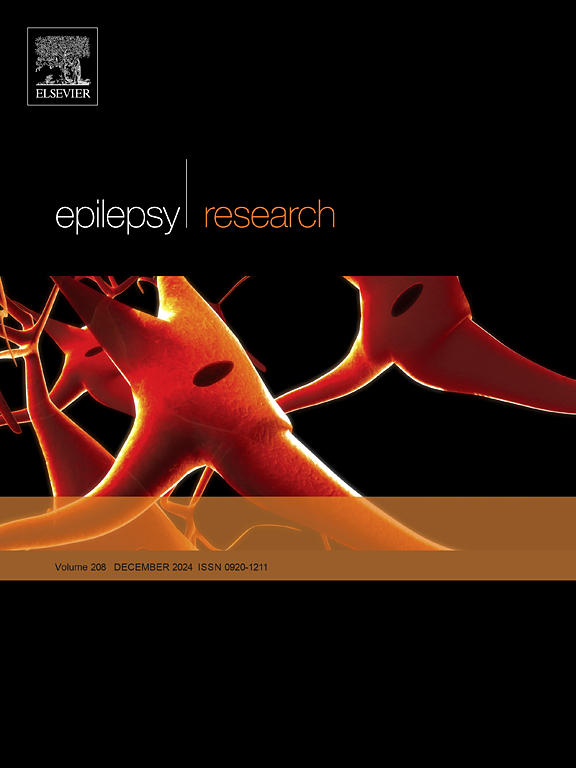Antiseizure medication discontinuation: A mixed-methods exploration of factors considered by patients when approaching decision-making
IF 2
4区 医学
Q3 CLINICAL NEUROLOGY
引用次数: 0
Abstract
Objectives
Antiseizure medications (ASMs) represent standard treatment for epilepsy. Yet, ASMs have adverse effects, and seizure risk decreases with longer seizure freedom. Guidelines consider ASM withdrawal after a period of seizure freedom. However, work exploring how patients approach this decision is scarce. We inquired what decision-making factors patients feel are relevant to ASM discontinuation.
Methods
We conducted a mixed-methods study of adults seen for epilepsy, at least one-year seizure-free, across three academic institutions. This included a semi-structured interview script assessing attitudes towards seizures, ASMs, and ASM discontinuation.
Results
We interviewed 32 participants. Factors supporting ASM discontinuation included current side effects (e.g., dizziness, sedation), concern regarding long-term adverse effects, teratogenicity, inconvenience from taking and refilling prescriptions, feeling like seizure freedom demonstrated that they were ‘cured’, or low concern regarding seizure consequences. However, many reasons supported continued treatment, e.g., fear of seizures and their psychosocial consequences, little perceived downside to taking ASMs, or overall more substantial pros than cons. Patients noted that they might consider discontinuing ASMs if the medication was known to cause severe adverse effects (e.g., cancer), or if the doctor could guarantee seizure freedom post-discontinuation.
Conclusion
Numerous themes emerged including reasons favoring continued ASMs (e.g., fear of seizures and their psychosocial consequences, perceiving little downside to continued ASMs) but also many reasons against continued ASMs (e.g., side effects, inconvenience). Discussions surrounding how long to continue ASMs should be highly individualized given the heterogeneity of patient preferences regarding treatment and counseling.
抗癫痫药物停药:患者在接近决策时考虑的因素的混合方法探索
目的抗癫痫药物(asm)是癫痫的标准治疗方法。然而,抗痉挛药物有副作用,癫痫发作风险随着癫痫发作自由时间的延长而降低。指南考虑在一段时间的癫痫发作自由后停止ASM。然而,研究患者如何做出这一决定的工作很少。我们询问了患者认为与ASM停止相关的决策因素。方法:我们在三个学术机构对至少一年无癫痫发作的成人进行了一项混合方法研究。这包括半结构化的访谈脚本,评估对癫痫发作、ASM和ASM停止的态度。结果我们采访了32名参与者。支持ASM停药的因素包括当前的副作用(如头晕、镇静)、对长期不良反应的担忧、致畸性、服用和重新配药的不便、感觉癫痫发作自由表明他们已被“治愈”,或对癫痫发作后果的低担忧。然而,许多原因支持继续治疗,例如,害怕癫痫发作及其社会心理后果,几乎没有察觉到服用抗痉挛药的负面影响,或者总体上利大于弊。患者指出,如果药物已知会导致严重的不良反应(例如,癌症),或者如果医生可以保证停药后癫痫发作自由,他们可能会考虑停药。结论:支持持续痉挛的原因有很多(如害怕癫痫发作及其社会心理后果,认为持续痉挛没有什么坏处),但也有很多反对持续痉挛的原因(如副作用、不便)。考虑到患者在治疗和咨询方面的偏好的异质性,围绕asm持续多久的讨论应该高度个性化。
本文章由计算机程序翻译,如有差异,请以英文原文为准。
求助全文
约1分钟内获得全文
求助全文
来源期刊

Epilepsy Research
医学-临床神经学
CiteScore
0.10
自引率
4.50%
发文量
143
审稿时长
62 days
期刊介绍:
Epilepsy Research provides for publication of high quality articles in both basic and clinical epilepsy research, with a special emphasis on translational research that ultimately relates to epilepsy as a human condition. The journal is intended to provide a forum for reporting the best and most rigorous epilepsy research from all disciplines ranging from biophysics and molecular biology to epidemiological and psychosocial research. As such the journal will publish original papers relevant to epilepsy from any scientific discipline and also studies of a multidisciplinary nature. Clinical and experimental research papers adopting fresh conceptual approaches to the study of epilepsy and its treatment are encouraged. The overriding criteria for publication are novelty, significant clinical or experimental relevance, and interest to a multidisciplinary audience in the broad arena of epilepsy. Review articles focused on any topic of epilepsy research will also be considered, but only if they present an exceptionally clear synthesis of current knowledge and future directions of a research area, based on a critical assessment of the available data or on hypotheses that are likely to stimulate more critical thinking and further advances in an area of epilepsy research.
 求助内容:
求助内容: 应助结果提醒方式:
应助结果提醒方式:


